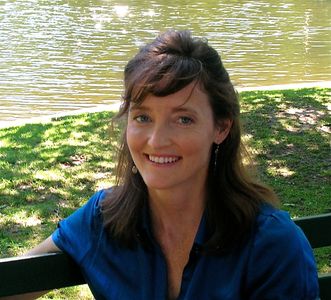Theologizing in the Aftermath
Resources for Religious Leaders Responding to Trauma
Principal Investigator: Dr. Shelly Rambo

This project aims to develop resources for religious leaders who are confronting situations of trauma. The field of trauma studies has exploded in the past two decades, and the research on the psychological, physical, social, and spiritual effects of trauma is critical in discerning fitting responses. Although there are multiple clinical resources available, this project focuses on developing a theologically grounded set of resources for religious leaders in such situations. While providing leaders with a basic understanding of the phenomenon of trauma and its effects on individuals and communities, I also engage them in a process of theological reflection and integration. What are the practices, liturgies, and narratives within religious traditions that can be instrumental in trauma healing? I believe that religious persons have unacknowledged, and therefore unaccessed, tools for engaging in trauma work.
The first part of the grant specifically targeted three particular arenas in which theological response to trauma is most timely and pressing: 1) the current Iraq war; 2) disaster response; 3) urban violence.
♦ 1. During the current Iraq war, military chaplains are increasingly involved in trauma response and are seeing more and more cases of PTSD. Training programs for post-war re-entry are incorporating not only more information about trauma (as opposed to stress) but also more information about spirituality and religion (given the religious dimensions of the present war). Military trauma also affects non-military clergy. When veterans return home, they will face the challenges of integrating back into families and civilian life. How can their religious communities be active and effective in caring for them? What theological resources do chaplains and non-military religious communities need in order to attend effectively to the crisis of mind, body, and spirit that both enlisted soldiers and veterans experience?
♦ 2. Disaster response in the wake of Hurricane Katrina awakened theological reflection on the intersections of race and class in response to natural disasters. The trauma of the hurricane uncovered pre-existing layers of social and economic trauma. In the aftermath of Katrina, thousands of religious groups are traveling to New Orleans to participate in the rebuilding work. This area focuses on developing materials for religious groups entering into post-disaster situations. These groups will confront central questions of faith as they enter into the layered realities of the New Orleans’ context. While there, they also encounter religious contexts different from their own. What theological understandings do they carry into these situations? In what ways do certain theologies contribute to harm rather than foster healing?
♦ 3. In urban settings, there are distinctive factors that contribute to increased instances of trauma: poverty, access to health care and jobs, and high concentrations of diverse people living within a limited physical space. In this area of study, we focus on two areas: immigration and youth violence. With the sizable concentration of immigrants in large urban settings, the challenges of displacement from native countries, language barriers, legal status and documentation, all come into play within the layered realities of city life. Levels of trauma within immigrant populations are high and resources for addressing trauma are very low. Street violence within urban settings is also on the rise in many American cities. Drug trafficking, gangs, incarceration, and poor education are realities within urban settings that make youth vulnerable to trauma. In both cases, religious leaders play multiple roles-as spiritual advisors, political advocates, and counselors. How do they make sense of the webs of trauma that create and perpetuate violence within urban settings? What resources do they and their communities offer?
With a conviction that theological reflection grows out of particular contexts and social locations, I believe that the theological frameworks and perspectives of individuals and communities experiencing trauma must be seriously acknowledged. Not all traumatic events are the same, and neither are the individuals and communities that are affected by these events. Theological reflection on trauma should seek out a theological vocabulary that sufficiently addresses the realities that persons and communities experience. In this spirit, the three arenas of study also reflect the link between trauma and the social and political realities of particular communities. The realities of race, politics, economics, gender, environment, and globalization deeply inform and determine the effects of trauma and capacities for resilience in the aftermath of trauma.
In the present part of the grant, I am in the process of refining a basic introductory workshop. I have determined that this workshop is necessary as a prelude to any thinking regarding the 3 specific areas.
It will be presented in two sessions: The first is Trauma 101; this workshop seeks to provide religious leaders with a basic understanding of the phenomenon of trauma and its effects on persons and communities. This presentation covers everything from definitions of trauma, to neurobiology, to symptoms, and things like “secondary” and “vicarious” traumatization. The second is Integrating Theology in Contexts of Trauma; this workshop asks the question, “How do we think theologically within contexts of trauma?” and takes the insights and knowledge from the first workshop and thinks very specifically about the challenges that trauma poses to central religious narratives, symbols, and conceptions of sin, Jesus, church, etc.
Refining and piloting this workshop is the major task during the next few months. The research of the research team in the 3 areas specified above has informed my work significantly. I have learned much from them, and this knowledge has impacted significantly the project I am currently working on. Follow-up with the different pilot locations will help inform me as to what additional resources might be needed in the 3 different areas.